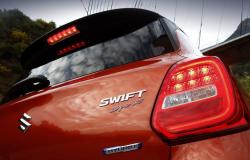06:28 PM
Although sales of electric cars are increasing worldwide, reaching 14 million units in 2023—an increase of 35% compared to 2022—, The market remains concentrated in just a handful of countries.
According to a report by the International Energy Agency (IEA), last year almost 60% of new electric and hybrid vehicle registrations were in China, 25% in Europe and 10% in the United States.
That is, these markets concentrated almost 95% of the cars sold in the world.
You can read: Government will invest $5,000 million for the industrial development of cannabis and hemp in Colombia
And according to the IEA, in 2023, more than one in three new car registrations in China was electric; more than one in five in Europe and one in ten in the United States.
In China the number of new registrations of these cars reached 8.1 million in 2023, an increase of 35% compared to 2022. That was the main reason for the general growth of its automotive sector, since sales of conventional cars (internal combustion) contracted 8% annually.
Meanwhile, In Europe, almost 3.2 million were sold in 2023, which represents an increase of 20% compared to 2022; and in the United States enrollment rose to 1.4 million in 2023, an annual increase of more than 40%.
Find out: Closure of Colmotores would end up favoring Colombian buyers, Asopartes anticipates
If you look Latin America, almost 90,000 electric units were sold, with the markets of Brazil (50,000), Mexico (15,000), Costa Rica (5,000) and Colombia (3,677) leading the region.
“Sales remain limited elsewhere, even in countries with developed automobile markets such as Japan and India. The global fleet of electric cars is also increasingly concentrated,” noted the international organization.
The strategy
It was thanks to an aggressive strategy and significant investment in technology and infrastructure that China has managed to rapidly gain ground.
This meant that while American and European electric car manufacturers are unhappy with Chinese competition in the sector, that country produce increasingly affordable vehicles.
Also read: Uncertainty and low sales mark 12 months for oblivion in the industry
Xi Jinping’s government, for example, this year will grant a government subsidy of 10,000 yuan, some 1,400 dollars (more than 5 million Colombian pesos with the current exchange rate), in order to encourage the change of old vehicles for electric models.
The measure is added to the extension made until 2027 of tax exemptions for the purchase of electric and hybrid vehicles: Those purchased in 2024 and 2025 will be exempt from the purchase tax of up to 30,000 yuan, and the relief will be halved for purchases made in 2026 and 2027.
Likewise, the Chinese government has also provided direct subsidies to some of its manufacturers such as BYD, for about $3.7 billion.
Related: Ford will launch its first 100% electric car in Colombia
According to the IEA, this type of public incentives helps manufacturers develop models with prices equal to or even lower than those of gasoline in the same category.
For example, in the Asian giant they are already sold about 50 models of small electric cars, many of which have a price of less than 100,000 yuan, about 15,000 dollars (58.5 million Colombian pesos).
“These encouraging trends suggest that Price parity between electric and internal combustion cars could also be achieved in other countries in certain segments by 2030if the share of electric car sales continues to grow, and if supporting infrastructure, such as charging, is maintained,” the report stated.
Nevertheless, The European Union has already launched an investigation into imports of electric vehicles from China, to determine whether that country’s value chains benefit from illegal subsidies and whether this type of aid causes or threatens economic harm to local producers.
For its part, the United States, interested in putting a stop to China, is seeking to impose new rules that would make it difficult to give discounts to electric vehicles. limiting U.S. buyers from being able to claim tax credits if they buy cars whose batteries contain materials from China and other countries such as North Korea, Russia or Iran.
It should be noted that the manufacture of electric cars entails a great demand for strategic metals that, at the moment, China dominates both in its extraction and processing. These are lithium, nickel, cobalt and rare earths.
It also monopolizes two important supply chains for battery manufacturing: It refines 95% of the manganese produced in the world and extracts 64% of the graphite.
Thus, for the IEA, Electric and hybrid sales this year would have downward risks worldwide. Factors such as high interest rates, the tightening of some requirements for credits or public aid, and economic uncertainty, could potentially reduce the growth of that market.






